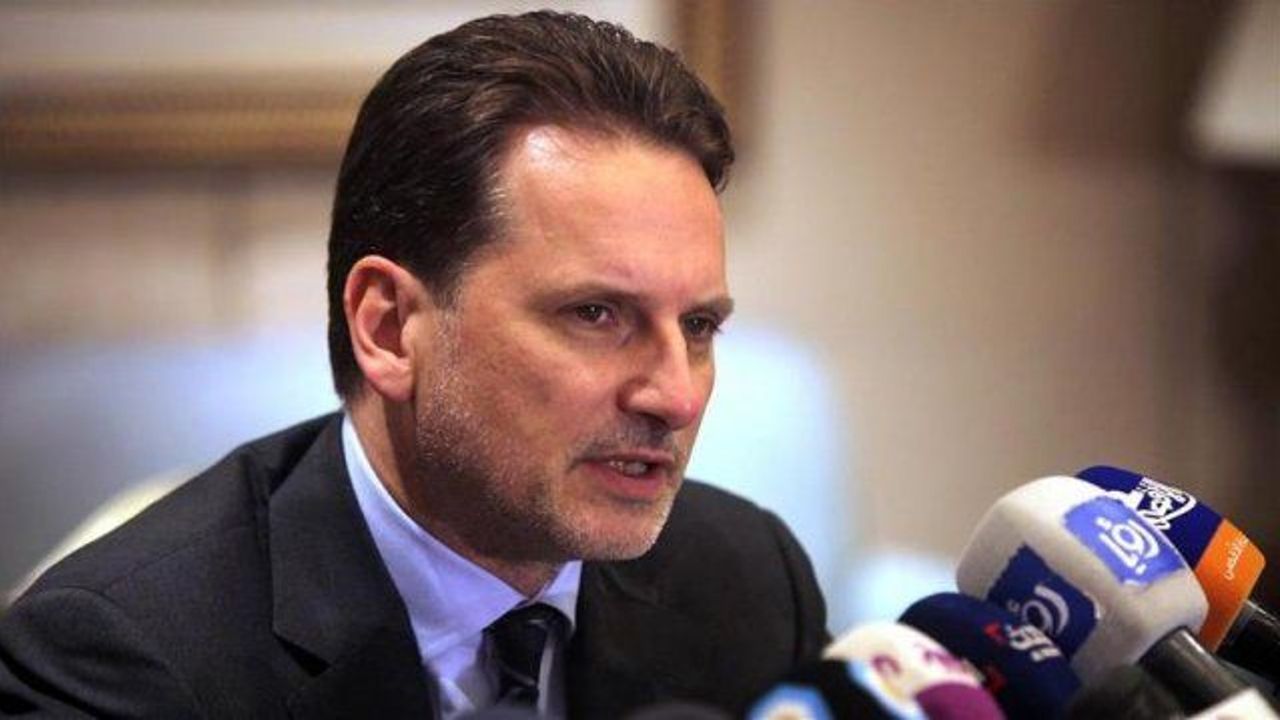'Turkey has key voice on Palestine refugees'
Turkey's experiences in working with Syrian refugees and its traditional closeness to the Palestinian cause can be an asset for the U.N. agency for Palestinian refugees (UNRWA), its chief told Anadolu Agency in an exclusive interview.

Ahead of a trip to Turkey on Tuesday, UNRWA's Commissioner-General Pierre Krahenbuhl voiced hope his meetings with Turkish officials and development agencies could open up new opportunities for partnership, especially before Turkey takes a key role as Vice-Chair of the agency's Advisory Commission next year.
"Turkey has been supportive of UNRWA activities, in particular through a mix of food assistance and cash support to our organization but we’re very keen to see what other opportunities there would be and would exist in the future," Krahenbuhl said.
“I’m very keen to look at areas of mutual interest in education but I know that historically there has been a strong focus on Gaza and the tension there, so if we can expand further the areas of cooperation in that regard, that would be very welcome,” he said.
UNRWA works with more than five million Palestinian refugees across the occupied Palestinian territories, Jordan, Syria and Lebanon but has struggled with funding instability, almost leading to the start of the school year being delayed last year, with an expected $115 million funding shortfall next year.
With much of world attention focused on other crises in the Middle East, Krahenbuhl said UNRWA has had to work to raise awareness about Palestinian refugees to ensure they do not fall off the international agenda at a time when many in Syria and the blockaded Gaza Strip remain especially vulnerable.
“This is certainly an area where I’m very interested to have Turkey’s voice heard in these debates,” he said.
"For me, it’s just important that the historic support and focus that Turkey has on the issue of Palestine and Palestinian refugees remains. And I think from everything that I’m seeing in the preparation of this visit, the signs are very strong in the regard,” said Krahenbuhl, who will also brief Turkish officials on UNRWA's work with Palestinian refugees during his trip.
-Traumatized refugees
At a meeting of UNRWA's Advisory Commission in Amman last week, Krahenbuhl warned the Khan Eshieh refugee camp near Damascus risked becoming the "next Yarmouk", referring to another camp that has been besieged for long periods since 2013.
He said the same patterns of fighting between armed groups and government forces inside the camp reflected the situation in Yarmouk that created a humanitarian crisis for its residents, who ended up being cut off from UNRWA services and food supplies.
Last week, UNRWA staff member Husein Ali Muhsen, 52, was killed in Khan Eshieh when an airstrike hit a mosque during morning prayers.
"[The recent violence] gives the indications of the risks that you have when hostilities increase and civilians are caught up in the middle of it," he said.
"[It is] very difficult for them to leave and we always call for all parties to actually respect civilians in that context but we see this pattern that is very similar to some of the aspects that we saw in Yarmouk. When you think of how many were displaced and lost their lives in Yarmouk, it is a very big worry there in Khan Eshieh.”
While UNRWA has managed to continue to operate many of its services, including schools, despite often restricted access to areas like Khan Eshieh or Yarmouk, Krahenbuhl said the war is deepening the trauma for young generations of Palestinian refugees.
“These are people who have now lived as yet another generation of Palestine refugees the trauma of displacement and loss. And that already sits so deep in the community in terms of its history – the loss of the homes in Palestine historically and having fled to Syria and the time," he said.
"And the younger generation used to hear their parents and grandparents speak about what happened in '48 and '67, now experience their own trauma in multiple ways."







